Buy in bulk
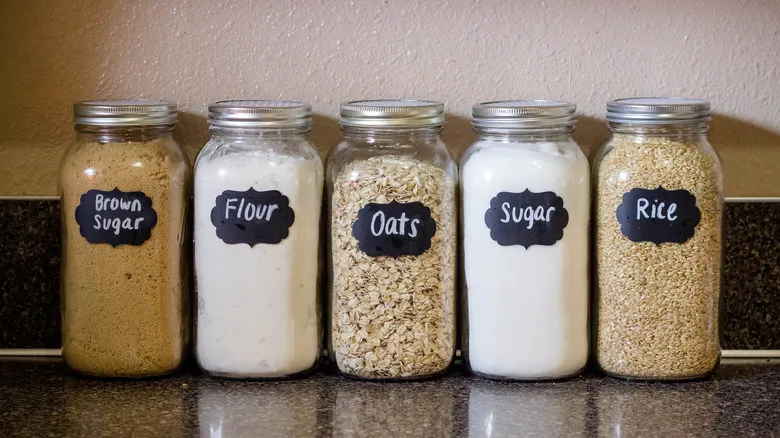
Engaging in baking as a pastime can become quite costly, but with some strategic planning, you can reduce expenses to a more manageable level. There are several key ingredients, like eggs, flour, and chocolate chips, that you'll frequently use, and purchasing them in bulk often proves to be more economical.
"Buying in bulk can significantly benefit those who are mindful of their budget," Becky Harding noted. "You typically receive a better price per unit when you buy larger amounts of essential items like flour, sugar, and chocolate chips."
However, before you rush to stock your pantry, it's crucial to ensure that you're genuinely saving money in the long term. "It's wise to compare the price per ounce or per 100 grams to confirm that bulk purchases are indeed cheaper," Holly Nilsson recommended. "If the savings are minimal, I prefer to buy smaller amounts to maintain freshness, particularly for items that take up a lot of storage space."
Harding also has a helpful tip for keeping bulk milk fresh. "After opening, add a pinch of salt to your milk to serve as a preservative and inhibit bacterial growth," she suggested. "Be sure to shake it well and refrigerate it right away."
Invest in good quality airtight containers
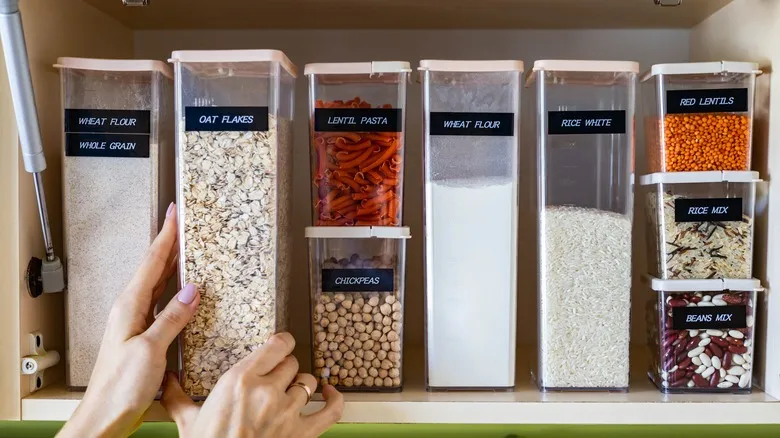
After purchasing your staples in bulk, it's essential to find effective ways to maintain their freshness. There's no benefit in scoring a great deal on flour if you end up discarding it a few months later because it has gone stale.
According to Holly Nilsson, "For most ingredients, investing in high-quality airtight containers for storage and keeping them away from heat and light is the best approach. Make sure to label the containers with expiration dates or the date you opened the ingredient. I use a sharpie, which can be easily wiped off most smooth surfaces—whether glass or plastic—with hand sanitizer or rubbing alcohol."
Becky Harding concurs and emphasizes the importance of monitoring expiration dates. "It's vital to be aware of product expiry dates and to have sufficient storage space to avoid spoilage, as you don't want to waste ingredients," she advises. "Using proper airtight containers and maintaining a cool, dark pantry are key."
She also offers a useful tip for keeping eggs fresh, particularly if you've purchased them in bulk. "Eggs have a natural protective coating known as the bloom, which helps retain moisture and keep bacteria out, but this can be removed during cleaning and packaging," she notes. "Applying a thin layer of vegetable oil can help restore that barrier and prolong their shelf life."
Buy ingredients when they are on sale
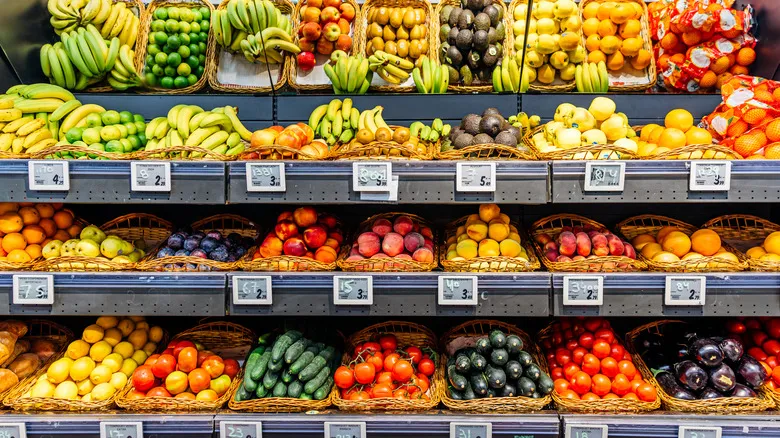
Just because you're baking on a budget doesn't mean you have to settle for the lowest quality ingredients. Look out for items on sale and grab them when you can, freezing them if needed until you're ready to use them.
"If possible, plan your baking ahead of time so you can take advantage of sales," suggests Holly Nilsson, highlighting that the holiday season is an excellent opportunity for this. "It's the ideal time to stock up on ingredients that have a long shelf life. Butter freezes well if you find a great deal, as do most pies, cookies, and cakes."
Becky Harding also advocates for planning ahead to save money. "Organize your baking to prevent impulse buys and cut costs," she advises. "Watch for sales on ingredients and adjust your baking schedule to take advantage of them."
Whether it's seasonal discounts or fresh produce nearing its expiration date, there are plenty of bargains to discover if you're willing to look and have the right storage to keep items fresh. So stay alert every time you visit the store—you might just score an amazing deal.
Use seasonal ingredients
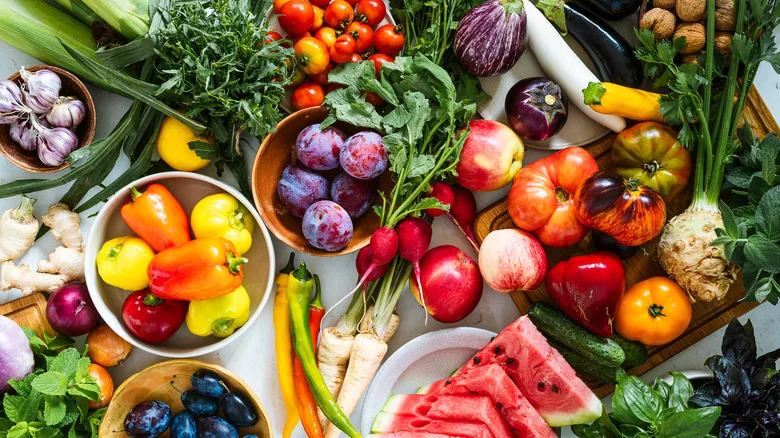
To savor fresh produce at its peak flavor and lowest price, opt for seasonal foods whenever you can. Foods that are in season are more readily available in your area and don’t require importation, resulting in reduced costs and a smaller environmental footprint.
"Seasonal fruits and vegetables are generally more affordable and often more flavorful," noted Becky Harding. "Try to include them in your baking whenever you can. For instance, use fresh berries in the summer for pies and crumbles, and apples and pears in the fall for cakes and muffins. You can also freeze or preserve any surplus produce to enjoy throughout the year."
A fantastic way to support your local community while stocking up on delicious, vibrant produce is to visit a nearby farm or your local farmers market. "I’m fortunate to live in a place where I can frequently buy fruit directly from growers or visit U-Pick farms to gather my own berries," shared Holly Nilsson. "Seasonal ingredients can also be preserved for later use. Fresh fruits, berries, and zucchini are abundant and more affordable in the summer, and they freeze well for desserts all year round."
Additionally, holidays can be an excellent opportunity to stock up. "I keep an eye out for sales after holidays on items that freeze well, like bags of cranberries after Thanksgiving or high-quality chocolate after Valentine's Day," Nilsson added.
Make your own 'essentials'

Extracts and spice blends can often be quite expensive, but the good news is that with a bit of planning, you can create your own versions for less. "You can cut costs by making items at home, such as homemade vanilla extract — just remember to plan ahead, as it needs several months to steep — or homemade caramel sauce instead of buying it," said Holly Nilsson. "The added benefit is that homemade versions typically taste better!"
Purchasing boxes of pre-mixed spices can give a misleading impression of savings, especially since you probably already have the individual ingredients in your spice cabinet. With a little effort, you can achieve the same flavors without the added cost. "I enjoy making my own versions of items like biscuit mix or baking spice blends," Nilsson shared. "Blends like pumpkin pie spice, apple pie spice, and even cinnamon sugar are much more affordable to make at home. Plus, I can prepare smaller batches, ensuring the spices are fresher and more flavorful."
Becky Harding also supports the idea of making your own extracts at home, noting that a homemade vanilla extract made from just vanilla beans and vodka can last for up to five years. So, the next time you find yourself low on a pantry staple, consider saving some money and trying your hand at making it yourself!
Find low-cost alternatives to expensive ingredients
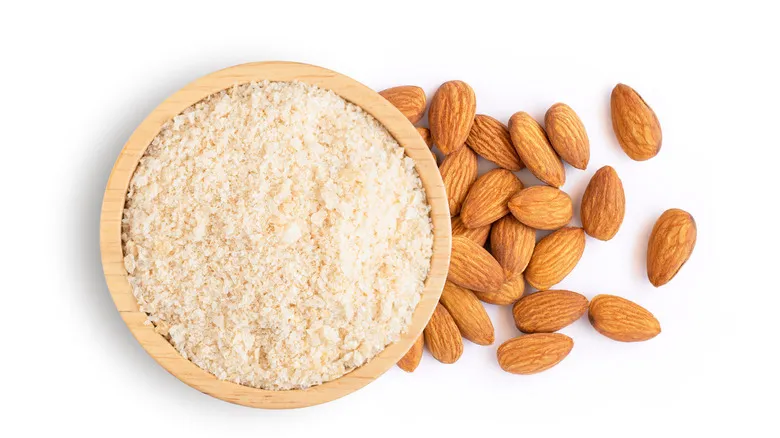
Specialty ingredients can make shopping for a new baking recipe enjoyable, but some can be quite expensive. While indulging in a premium item occasionally is fine, it's essential to find more affordable alternatives for ingredients you use frequently.
"There are definitely many costly ingredients that can be replaced, but it often depends on how they're used," Holly Nilsson noted. "For instance, artificial vanilla extract works well in baking as pure vanilla extract can be quite expensive." However, it's important to ensure that the ingredient you're substituting plays a minor role in your recipe. If it’s a key component, Nilsson suggests opting for the authentic version.
Becky Harding also offers tips on how to replace pricey ingredients with budget-friendly substitutes that still perform effectively. "You can substitute almond flour with a mix of oat flour and coconut flour at a much lower cost," she advised. "Pure maple syrup can be replaced with a blend of honey and brown sugar. And while high-quality cocoa powder is preferred, natural unsweetened cocoa can often yield excellent results at a more affordable price."
Invest in a few quality baking tools
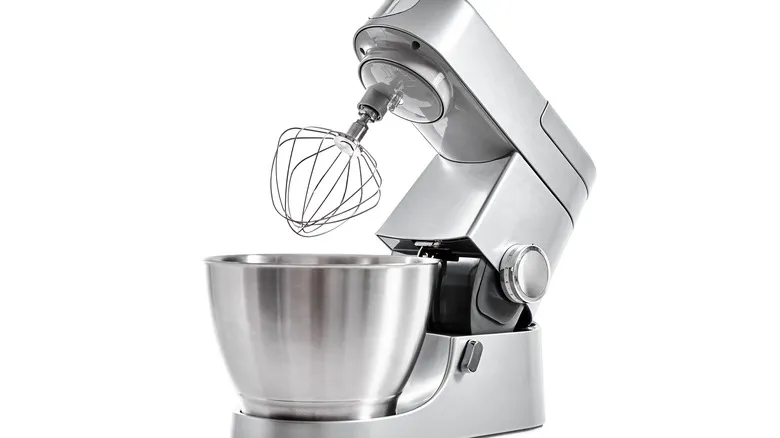
Generally, opting for lower-cost items is the most effective way to save money while baking. However, there are times when investing in a pricier piece of equipment can be worthwhile in the long run, particularly if it serves multiple purposes. "Investing in a quality stand mixer or food processor can be transformative," said Becky Harding. "These appliances can perform a range of tasks, from mixing dough to chopping nuts and grating cheese. Although they may require a larger initial investment, they can ultimately save you time and effort, and you'll likely find them useful for various cooking projects as well."
For smaller tasks, a handheld option might be more appropriate and can still manage a variety of kitchen duties. "An immersion blender is a handy tool to have, and many come with different attachments like a chopper, whisk, and even a mini food processor," noted Holly Nilsson. "This option is more economical than purchasing each item separately, plus it conserves both space and time."
Nilsson also recommended investing a little more in everyday essentials like pans and baking trays, as they tend to be more durable than their cheaper counterparts and yield better results. "I also suggest using an oven thermometer to make sure your oven is at the right temperature," she added. "These investments will lead to improved baked goods and less wasted ingredients."
Batch-bake to save time and money
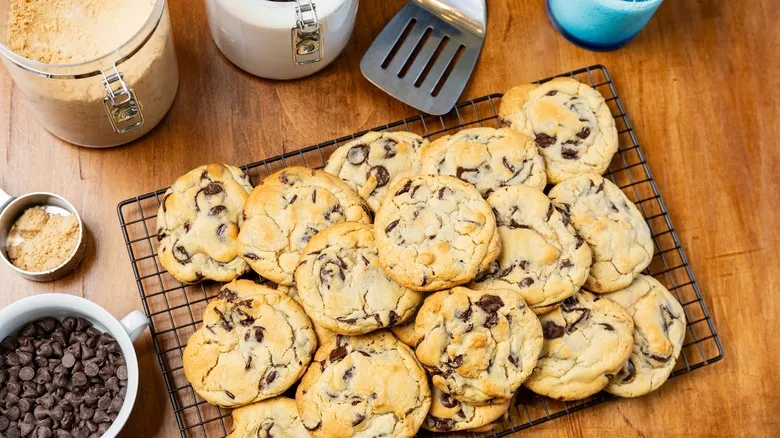
A valuable tip that can help you save both money and time is to bake in batches. Instead of baking every few days, consider preparing double or triple the amount at once and storing the extras for later use.
"Baking larger quantities can definitely reduce costs, particularly when you factor in energy expenses," said Becky Harding. "You're using the same energy to bake one loaf of bread as you would to bake two. Additionally, it saves time over the long haul."
By incorporating batch baking with some of the other suggestions on our list, you can significantly cut costs while ensuring you always have delicious baked goods ready when you need them. "Most baked items, like cookies or dinner rolls, can be frozen, so you'll have them available instead of having to buy them from the store," Holly Nilsson noted. Just be sure you have enough freezer space before you decide to quadruple your recipes; you wouldn’t want to end up eating all the treats at once because there’s no room to store them!
Make recipes that use budget baking staples
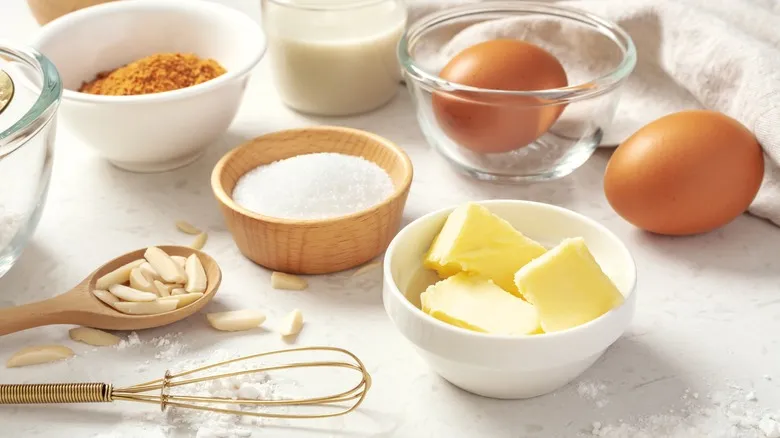
While it might be tempting to whip up a new dessert every few days using a variety of ingredients, keeping your expenses down is essential. The secret lies in utilizing what you already have on hand. Many recipes can be created with basic kitchen staples and just a few additional items. "There are numerous budget-friendly baking champions!" said Becky Harding. "Plain flour, sugar, and eggs form the foundation of many recipes. Unsalted butter is often more versatile than salted and can be more economical, while dried fruits like raisins and cranberries are cost-effective options to enhance flavor and texture."
Holly Nilsson concurs but notes that for certain products, opting for a pricier brand can be worthwhile. "Investing in ingredients like chocolate or butter can be beneficial, as premium brands usually contain fewer additives and offer better flavor or texture," she explained. "However, don’t be influenced solely by a higher price — if you have a favorite brand, stick with it."
Harding also suggested that when preparing a fruity dessert, fresh fruit isn't always necessary. Canned and frozen fruits can serve as excellent alternatives if a particular fruit is out of season or too pricey. The benefit is that they can be stored in the freezer or pantry for an extended period, ready to be used whenever needed.
Repurpose leftovers
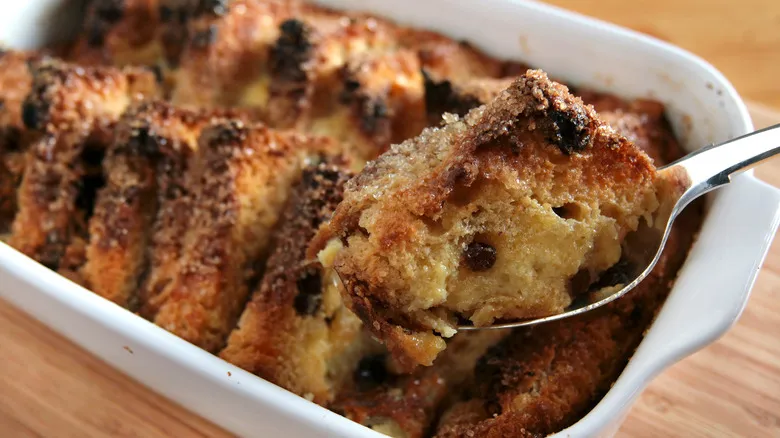
Just because you're adhering to a tight budget doesn't mean you have to forgo baking delightful treats. Utilizing leftovers from previous meals is a fantastic way to save money while also minimizing food waste. "Get inventive by transforming leftovers, like turning stale bread into bread pudding or croutons," advised Becky Harding.
Bread pudding is a quintessential dessert for using up leftovers and is a rich indulgence that will definitely make you feel satisfied. Overripe bananas are another great candidate for repurposing, as they can easily be transformed into banana bread.
Any forgotten fruit lurking at the back of your fridge can be effortlessly converted into a compote or used as a filling for a pie or crumble. With a bit of imagination, you can create simple baked goods using ingredients that were initially purchased for another recipe.
Use the freezer
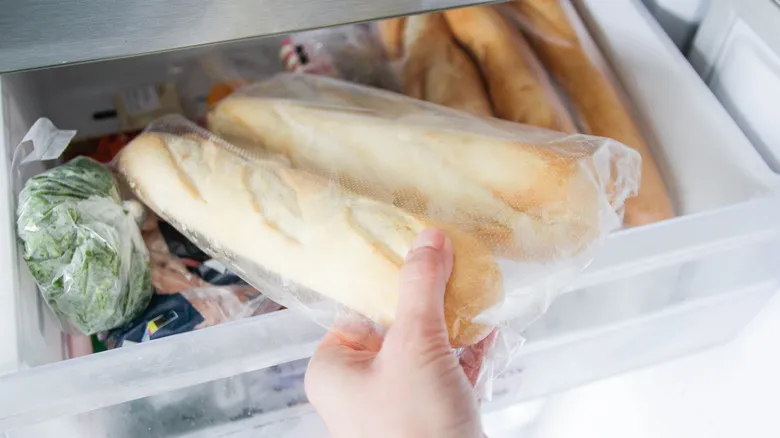
In your quest to bake on a budget, your freezer will be an invaluable resource. It can help you store bulk purchases or keep leftover pie fresh (if you happen to have any leftovers), making effective freezer use a vital part of your money-saving strategy. "This will help minimize waste from buying and baking in large quantities," said Becky Harding. "For perishable items like fresh fruit, consider freezing or dehydrating them to prolong their shelf life."
In addition to the usual ingredients we commonly freeze, Holly Nilsson pointed out that you can also freeze pantry staples to extend their longevity. "Many items, such as surplus flour and nuts, can be stored in the freezer if you have the room," she mentioned.
To maximize your freezer's potential, it's important to keep it well-organized. Whenever possible, store ingredients in uniform plastic or glass containers, as they are much easier to stack. Oddly shaped packaging can be cumbersome and waste valuable space. Freezer bags are another excellent option for saving space, allowing you to store baked goods like cookies as flat as possible. Properly sealing your food will also maintain its quality, reducing the likelihood of needing to discard anything later on.
Recommended
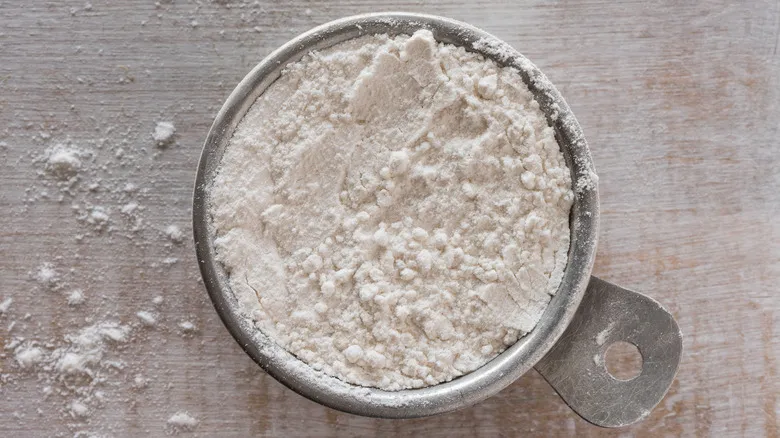
Turn All-Purpose Flour Into Self-Rising Flour With 2 Staple Ingredients
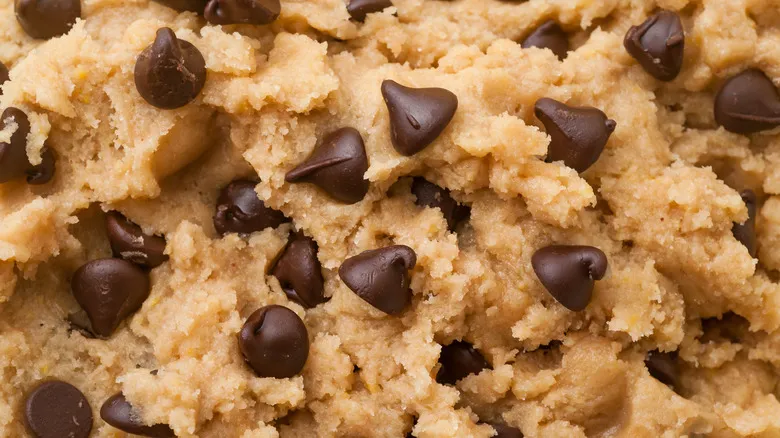
Give Your Cookie Dough An Ice Bath To Solve An Annoying Baking Problem
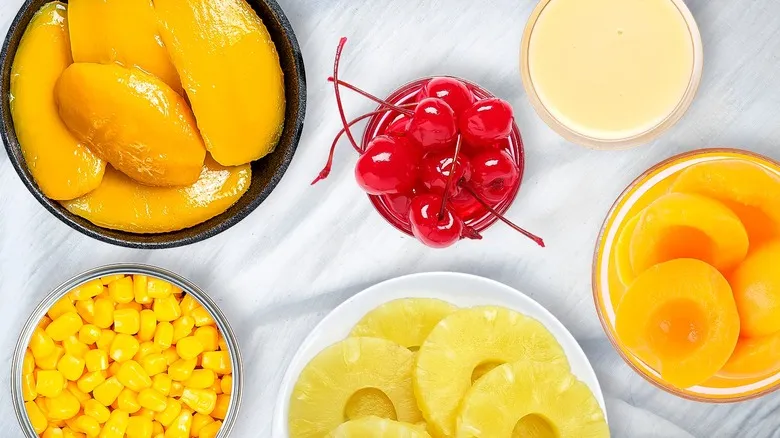
12 Canned Foods You Should Be Using For Easy Desserts
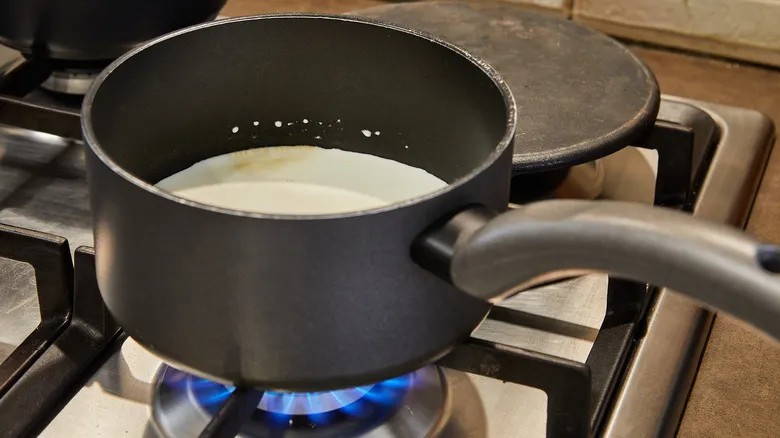
The Important Reasons A Recipe May Call For Scalding Milk
Next up

